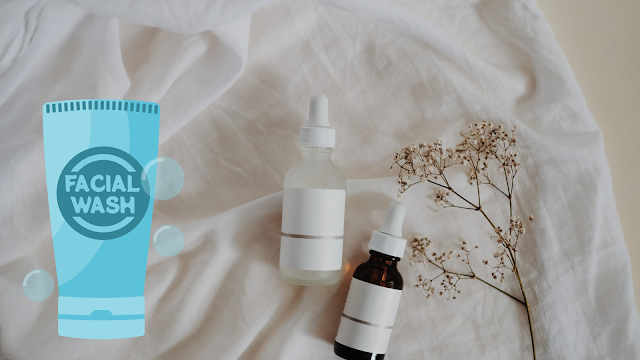Achieving healthy, radiant skin requires providing it with the nourishment it needs. One key component of an effective skincare routine is the application of serum. In this Blog, we will delve into the world of serums, exploring what they are, how they work, and most importantly, the optimal time to apply them.
By understanding the best practices for serum application, you can enhance the effectiveness of your skincare routine and achieve the glowing complexion you desire.
What is Serum?
Before we dive into the best time to apply serum on the face, let's understand what serum is. Serum is a lightweight moisturiser that contains active ingredients that penetrate deep into the skin. Unlike moisturizers, serums have a smaller molecular structure which enables them to penetrate deeper into the skin.
Serums can target a variety of skin concerns such as fine lines, dark spots, acne, and dullness. They can also improve your skin's texture and give you a radiant and healthy glow. For best result in your face, you need to apply Best Face-washes for Acne Prone skin of 2023
How Does Serum Work?
Serums contain active ingredients such as vitamin C, hyaluronic acid, and retinol that penetrate deep into the skin to provide it with the nourishment it needs. These active ingredients can help to stimulate collagen production, brighten the skin, and reduce the appearance of fine lines and wrinkles.
Serums are also known for their ability to hydrate the skin without leaving a greasy residue. They can provide long-lasting hydration that keeps your skin looking and feeling moisturized throughout the day.
When is The Best Time to Apply Serum on Face?
Now that you understand what serum is and how it works, let's discuss the best time to apply serum on the face. The general rule of thumb is to apply serum after cleansing and toning but before moisturizing.
This allows the serum to penetrate deep into the skin and provide it with the nourishment it needs. You should apply serum to your face and neck, gently massaging it into your skin with your fingertips.
The best time to apply serum on the face is in the morning and evening, after cleansing and toning. In the morning, applying serum before your sunscreen can provide an extra layer of protection against environmental damage.
Are there any specific serums for different skin concerns?
Yes, there are serums available for different skin concerns. Whether you're dealing with acne, hyperpigmentation, or aging skin, there are serums formulated to target specific issues. Look for serums that contain ingredients such as salicylic acid for acne-prone skin, niacinamide for hyperpigmentation, and peptides for anti-aging benefits. It's always a good idea to consult with a dermatologist to determine the best serum for your specific skin concerns.
Can I apply serum on other parts of my body?
While serums are primarily used on the face, you can certainly apply them to other parts of your body if desired. For example, if you have dry patches on your elbows or knees, applying a hydrating serum can help
moisturize those areas. However, keep in mind that serums can be more expensive than regular body lotions, so it's up to personal preference and budget.
Can I use serum if I have sensitive skin?
Yes, you can use serum if you have sensitive skin. However, it's important to choose serums that are specifically formulated for sensitive skin and are free from potentially irritating ingredients such as fragrance and alcohol. Patch testing a small amount of the serum on a small area of your skin can also help determine if your skin will react negatively to it.
Can I use serum during pregnancy?
While many serums are safe to use during pregnancy, it's always best to consult with your healthcare provider before incorporating any new skincare products into your routine. They can advise you on which ingredients to avoid and recommend pregnancy-safe alternatives.
Can I use serum if I have oily skin?
Yes, you can use serum if you have oily skin. Look for serums that are oil-free and lightweight, as they won't add additional oil to your skin. Ingredients like hyaluronic acid and niacinamide are particularly beneficial for oily skin, as they help to hydrate without clogging pores.
Can I use serum without moisturiser?
While serums contain potent active ingredients, they are not meant to replace moisturisers. Instead, they provide targeted treatment for specific skin concerns, while moisturisers lock in hydration and create a protective barrier. To achieve optimal results, it is advised to include both serum and moisturiser in your daily skincare routine.
In summary, the best time to apply serum on the face is after cleansing and toning, but before moisturising. By incorporating serum into your skincare routine, you can provide your skin with a boost of nourishment and address specific skin concerns. Remember to choose serums that are suitable for your skin type and concerns, and always follow the recommended application instructions. If you want to achieve a radiant glow on your face, we recommend using the Best Facial Cleansers for All Skin Types in 2023.
